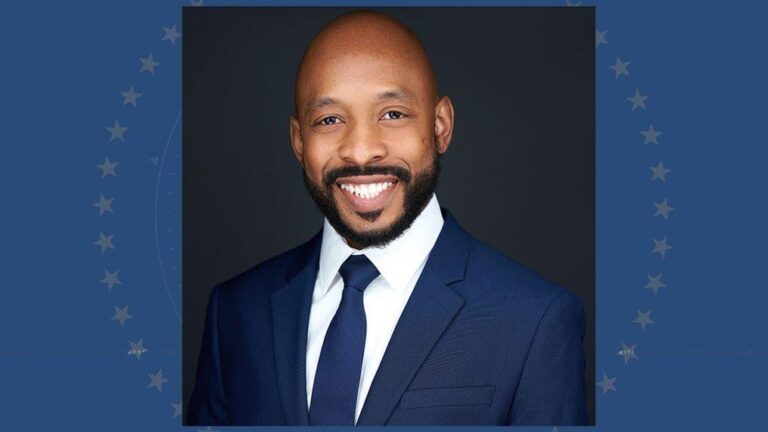Cybersecurity Emerges as a Pivotal Issue in Washington Secretary of State Election
As the contest for Washington Secretary of State heats up, cybersecurity has become a focal point of debate among candidates. Recent interviews and forums, highlighted by The Spokesman-Review, reveal starkly different visions for protecting the state’s election infrastructure and safeguarding voter information. With national concerns about election interference intensifying, this race is under close observation as candidates propose varied tactics to uphold electoral integrity amid rising cyber threats.
Divergent Cybersecurity Strategies Presented by Leading Candidates
In a spirited debate held recently, the candidates vying for Washington Secretary of State laid out their distinct plans to enhance the state’s cybersecurity defenses. Current officeholder Steve Hobbs advocates for a technology-centric approach, emphasizing the importance of investing in real-time cyber threat intelligence and strengthening collaboration with federal agencies. Hobbs pointed to a notable 30% decline in phishing attempts targeting election systems during his tenure as evidence of his strategy’s effectiveness.
On the other hand, challenger Julie Anderson champions a community-driven model, proposing comprehensive public education initiatives that engage local governments, small enterprises, and voters alike. Anderson stresses that cybersecurity is most robust when all stakeholders are informed and vigilant, recommending mandatory cybersecurity training for election officials and stricter oversight of election technology vendors. While both candidates agree on increasing transparency, they prioritize different methods:
- Hobbs: Leveraging advanced technology and federal partnerships
- Anderson: Grassroots education and enhanced regulatory frameworks
| Candidate | Primary Focus | Signature Initiative |
|---|---|---|
| Steve Hobbs | Technology & Intelligence Sharing | Real-time Cyber Threat Monitoring |
| Julie Anderson | Community Engagement & Training | Mandatory Cybersecurity Education for Officials |
Election Security Concerns Drive Policy Debates in Washington State
Election security has become a dominant theme in the Washington Secretary of State campaign, with candidates outlining ambitious plans to counteract escalating cyber risks. Protecting voter data and election infrastructure remains paramount, especially given Washington’s heavy reliance on mail-in ballots and the persistent threat of foreign interference. Candidates pledge substantial funding to modernize security systems and protocols.
Highlighted security proposals include:
- Upgrading encryption standards for election databases
- Conducting frequent independent cybersecurity audits
- Expanding cybersecurity training for local election personnel
- Exploring blockchain technology to enhance vote tracking transparency
| Candidate | Core Security Proposal | Projected Budget Increase |
|---|---|---|
| Alice Bennett | Statewide Encryption Enhancement | $3 million |
| Jake Marshall | Creation of Cybersecurity Task Force | $2 million |
| Maria Santos | Blockchain Voting Pilot Initiative | $4.5 million |
Specialists Evaluate Candidate Cybersecurity Proposals for Election Protection
Cybersecurity professionals have cautiously welcomed the diverse strategies presented by Washington’s Secretary of State hopefuls. Despite differing approaches, there is consensus on the urgent need to shield election systems from increasingly complex cyberattacks. Dr. Laura Chen, a cybersecurity expert at the Pacific Northwest Tech Institute, underscores the importance of multi-factor authentication and end-to-end encryption for securing voting data, while emphasizing that continuous audits and transparent oversight are equally critical.
- Adoption of blockchain for vote verification
- Increased investment in cybersecurity training for election staff
- Utilization of AI-powered anomaly detection tools
- Enhanced cooperation with federal cybersecurity agencies for threat intelligence sharing
Conversely, cybersecurity consultant Michael Trent questions whether some proposed budgets adequately address the complexity of modern cyber threats. He advocates for a balanced strategy that combines technological innovation with comprehensive policy reforms. The table below summarizes expert ratings of key candidate proposals:
| Candidate | Technological Emphasis | Funding Level | Expert Evaluation |
|---|---|---|---|
| Jane Doe | Blockchain Verification | Moderate | ‚ėÖ‚ėÖ‚ėÖ‚ėÖ‚ėÜ |
| John Smith | AI Anomaly Detection | High | ‚ėÖ‚ėÖ‚ėÖ‚ėÜ‚ėÜ |
| Alex Johnson | Multi-factor Authentication | Low | ‚ėÖ‚ėÖ‚ėÖ‚ėÜ‚ėÜ |
Effective Measures to Reinforce Voter Confidence Amid Cybersecurity Challenges
To rebuild and sustain public trust in elections, officials must implement a comprehensive strategy that blends cutting-edge technology with transparent governance. Essential actions include regular independent security audits to proactively detect vulnerabilities and multi-factor authentication to secure access to election systems. Real-time monitoring and enhanced collaboration with federal cybersecurity bodies and private sector experts are also vital to staying ahead of evolving threats.
Clear, accessible communication is crucial to demystify cybersecurity efforts for voters. Providing detailed explanations about paper ballot verification and post-election audits helps reassure the public about the integrity of their votes. Additionally, community outreach programs that train poll workers and educate voters on identifying misinformation play a key role in strengthening election security. The following table summarizes these recommendations:
| Recommendation | Objective | Expected Outcome |
|---|---|---|
| Independent Security Audits | Detect system vulnerabilities | Reduce risk of cyberattacks |
| Multi-factor Authentication | Protect system access | Prevent unauthorized breaches |
| Public Education Campaigns | Enhance transparency | Build voter confidence |
| Paper Ballot Verification | Ensure vote accuracy | Support audit processes |
Conclusion: Washington’s Election Security at a Critical Juncture
As candidates for Washington Secretary of State continue to debate cybersecurity policies, voters face important decisions about how best to protect the state’s election systems from emerging threats. With election security now a defining issue, the winner of this race will likely influence Washington’s approach to defending democratic processes for years ahead. The Spokesman-Review remains committed to tracking these developments and providing ongoing coverage as the election draws near.







